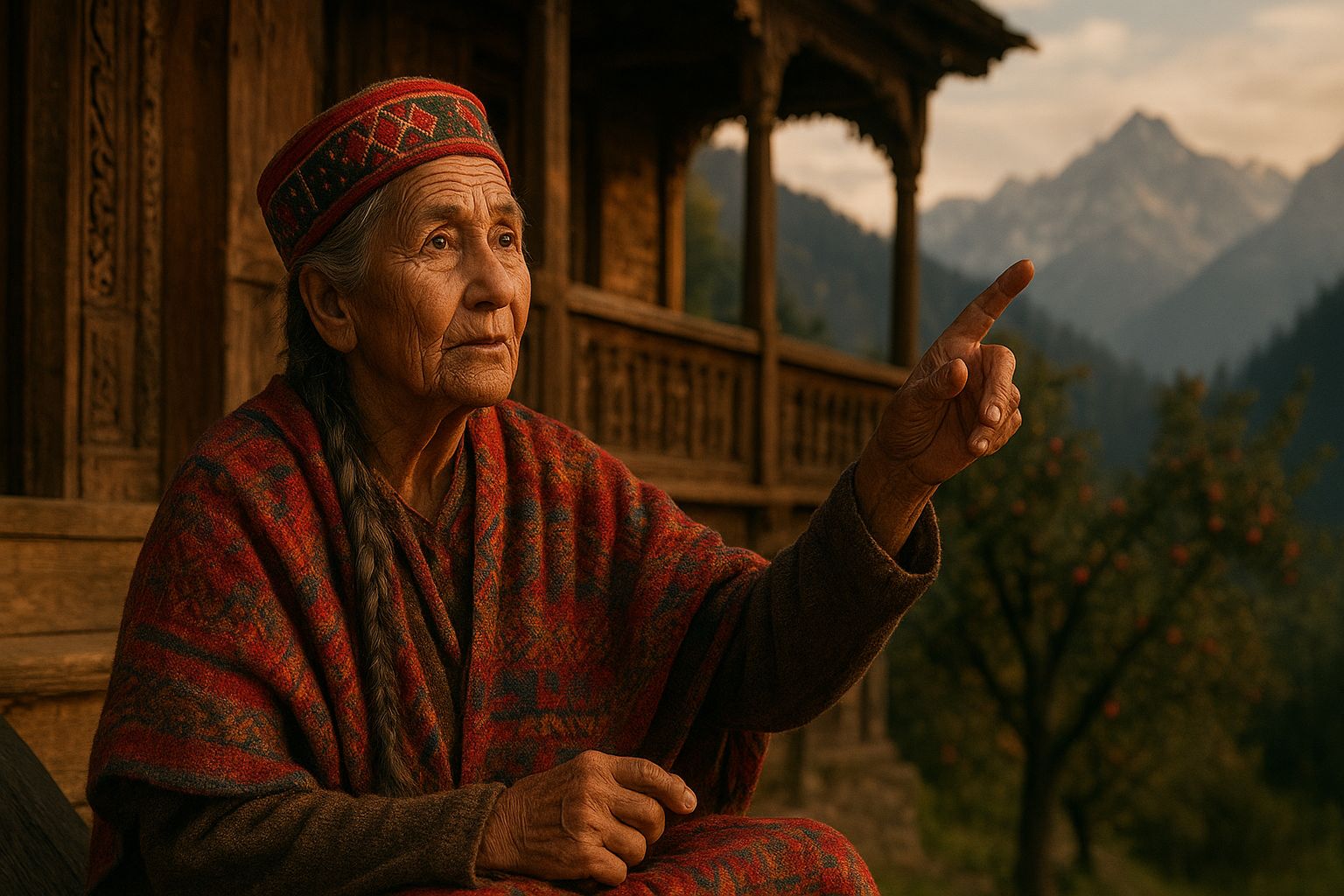SHOJA VILLAGE, HIMACHAL PRADESH
Mountains teach patience because weather teaches humility.
Devi aunty’s weathered hands move like conductors interpreting a symphony only she can hear. At 67, she reads mountain skies with accuracy that puts meteorological departments to shame.
Her predictions aren’t based on satellite data but on generational knowledge passed down through two centuries of mountain living. “My grandmother taught me to watch how animals behave, how clouds form over specific peaks, how wind carries different smells before weather changes. No app can teach you that.”
She lost her husband in an avalanche thirty years ago – a tragedy that deepened rather than shattered her connection to mountain moods. “After that, I understood that mountains aren’t our friends or enemies. They’re forces that demand respect. My husband thought he could push through bad weather. Mountains taught me the difference between courage and foolishness.”
Her daily routine revolves around observation. “Every morning, I step outside and listen. Not just to sounds, but to silences. Different silences mean different weather. Most people hear nothing, but I hear tomorrow’s forecast.”
She’s saved countless trekkers and riders from dangerous weather by insisting they wait an extra day. “People come from cities where everything runs on schedules. Mountains run on rhythms. You can’t negotiate with a storm, only respect it.”
Her knowledge extends beyond weather to medicinal plants, seasonal foods, and traditional building techniques that work with rather than against mountain conditions. “Modern people think we mountain folks are backward. We’re not backward – we’re forward enough to know what works.”
When I marveled at her accuracy, she smiled. “It’s not magic, beta. It’s just paying attention to the world instead of your phone. The mountains are always talking – most people just forgot how to listen.”
Some people predict the future. Devi aunty understands the present so clearly that tomorrow becomes obvious.
– Zara
